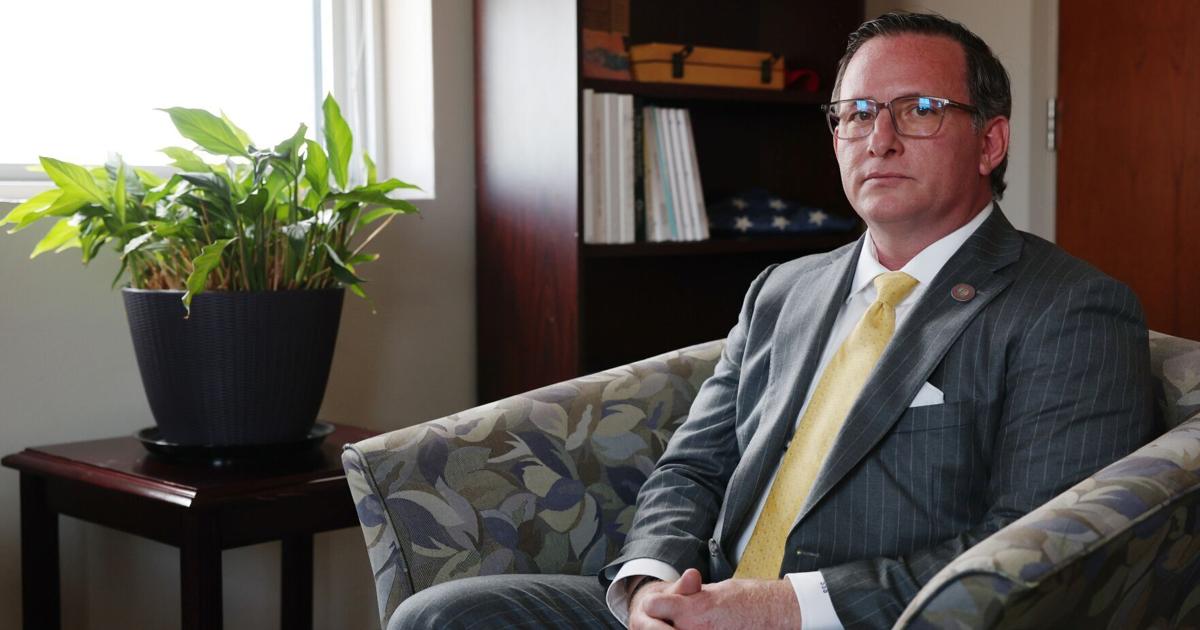Virginia’s top behavioral health official said the state has met 90% of 282 goals established in a settlement of a U.S. Department of Justice investigation into state training centers’ compliance with the Americans with Disabilities Act.
The state is also moving to launch programs and fund efforts to return people who are ready to be discharged from state hospitals to their communities, Behavioral Health and Developmental Services Commissioner Nelson Smith told the Legislature’s Joint Subcommittee on Health and Human Resources Oversight.

Smith said the federal judge overseeing the settlement is scheduled to hold a hearing on the status of the settlement next month.
“We’ve really put in place a solid plan for the future, with all the investments and everything else we’ve done over the last few years, so we feel very strongly that what we’re showing is what the Commonwealth is and we’re committed to continuing that,” Smith said.
Anyone else reading this…

Nelson Smith is director of the Virginia Department of Behavioral Health and Developmental Services.
Margo Wagner, Times-Dispatch
“That was a concern,” he added. Smith said of the judge, “His only concern is what’s going to happen in 20 years, so we feel we’ve put together a joint plan that gives him peace of mind.”
Smith said compliance measures the state is currently working on include crisis management, integrated day care and access to nursing staff in community facilities.
The settlement is the result of a U.S. Department of Justice investigation into the now-closed Central Virginia Training Center, in which the department determined that Virginia had failed to provide services to individuals with intellectual and developmental disabilities in the least restrictive environment appropriate to their needs.
The 2012 settlement led Virginia to close four of its five training centers, facilities that housed people with intellectual and developmental disabilities, and to strengthen community services for those people.
Mental hospital
Meanwhile, the state is focusing on helping people who are ready to leave state psychiatric hospitals do so sooner.
The problem is that even people who no longer need hospital care still need other supports, such as a safe place to live, to live independently.
About 175 people are on the list for discharge from state hospitals, meaning it’s been seven days since a doctor said they no longer need to be hospitalized — shorter than the previous 30 days but still down from a peak of more than 200 a few years ago.

Virginia’s psychiatric hospitals, including Central State Hospital in Dinwiddie County, have often been at or above capacity in recent years.
Bob Brown, Times-Dispatch
So far this year, the number of people coming off the so-called “special barrier list” has been between 2 and 20 more each month than those who were put on the list, Smith said.
In May, the most recent month for which the agency has data, the biggest barrier was where to stay. It was a barrier for 74 of the 178 people on the list that month, according to the agency’s data. The second-biggest barrier was the process for addressing concerns about people hospitalized after pleading not guilty by reason of insanity to criminal charges, affecting 28 people. The legal process for arranging guardianship was a barrier in 22 cases.
Smith said many of the state’s efforts to speed up discharges have focused on communication and bureaucratic glitches that can sometimes slow them down, such as paperwork getting stuck in inboxes because a key person is on vacation.
The province has also set aside more than 282 beds in nursing homes, retirement homes and transitional housing, and is funding 72 of a 100-bed goal this year in group homes for people with severe mental illness.
The department is helping fund the Community Services Board to increase the number of memory care beds it has available to house dementia patients from 20 to 28. Dementia is one of the reasons people without mental illness end up in state hospitals, and often remain there because they can’t find a safe place else to stay.
Smith said the state is also working to promote permanent supportive housing — essentially rent-subsidized apartments linked to mental health services.
Smith said another big initiative will be alternatives to hospitalization for people with personality disorders, including training on potential barriers to discharge.

